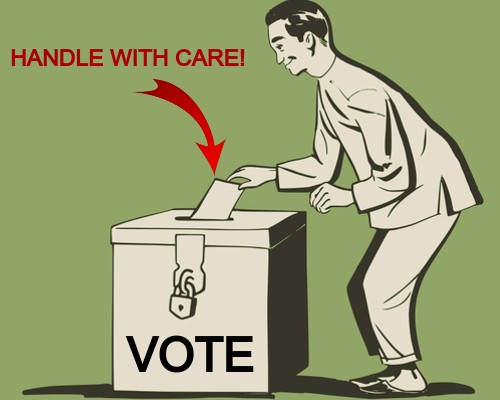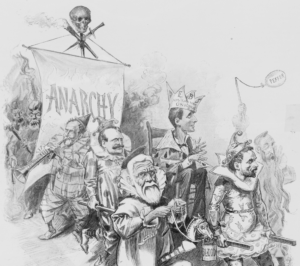 Chief White House Strategist Steve Bannon speaking at the 2017 Conservative Political Action Conference (CPAC) in National Harbor, Maryland. Photo by Gage Skidmore. Creative Commons Attribution-Share Alike 2.0 Generic license.
Chief White House Strategist Steve Bannon speaking at the 2017 Conservative Political Action Conference (CPAC) in National Harbor, Maryland. Photo by Gage Skidmore. Creative Commons Attribution-Share Alike 2.0 Generic license.
“The real opposition is the media,” Donald Trump confidant Steve Bannon told Michael Lewis in 2018, “and the way to deal with them is to flood the zone with sh*t.”
Somewhat vulgar, perhaps, but a reasonably accurate summation of the Trump campaigns’ and administrations’ political strategy as practice ever since:
Make enough claims and do enough stuff all at once that it’s nearly impossible to keep track of it all, let alone sort out the true from the false from the downright insane.
If everyone’s outraged, about everything, all the time, there’s no single issue or coherent set of issues for a real opposition to coalesce around, leaving Trump (and whichever lickspittles happen to bow and scrape their way into earshot this week) free to do as they like without significant constraints.
That’s been MAGA’s strategy ever since, but Bannon misspoke, probably intentionally. The media are not the real opposition. They’re just the communications channels Bannon, Trump, and friends want to confuse and abuse. Their real target is you.
By “you,” I don’t mean only those who supported a presidential candidate other than Trump, or no candidate at all. I mean “you” as in “everyone.”
If you’re at all capable of gazing across the sh*t-flooded zone, and if you boast more IQ points than the ounce count of a pint of beer or can of creamed corn, you’re aware by now that Trump’s waging a war on you, your wallet, and your rights, even if you voted for him.
He’s used pompous declarations of fake emergencies to among other things, levy the largest tax hike in more than a century and unleash a police state apparatus that doesn’t limit itself to immigrants as victims and soon won’t pretend to. Not to mention …
… well, that’s the problem, see?
I write op-eds.
The fuel for op-eds is whatever’s happening in the “news cycle” — the current events most deserving of, or at least demanding, attention.
And the news cycle has become the aforementioned “zone.”
Three times a week, I wake up knowing I need to write a column.
In normal times, there might be two or three really big stories competing for public mindshare, and maybe one that’s a little offbeat but worth bringing into the competition.
These days, I can open my news feed in the reasonable certainty of finding five court ruling against Trump, two Supreme Court rulings in Trump’s favor, five crazy things the guy said in the last 24 hours, ten human interest stories about his latest victims, and maybe yesterday’s Major League Baseball box scores.
The zone is flooded. I’m always at least knee deep in Dr. Bannon’s prescription-strength fecal matter and flinging a little of it at you doesn’t seem likely to leave you better informed than you were.
Many of MAGA’s supposed opponents say this situation is about “democracy,” but it isn’t.
It’s about reality, and about our ability to clearly discern that reality and act accordingly.
Trump is at war on that ability. Don’t let him win.
Thomas L. Knapp (Twitter:@thomaslknapp) is director and senior news analyst at the William Lloyd Garrison Center for Libertarian Advocacy Journalism (thegarrisoncenter.org). He lives and works in north central Florida.
PUBLICATION/CITATION HISTORY


